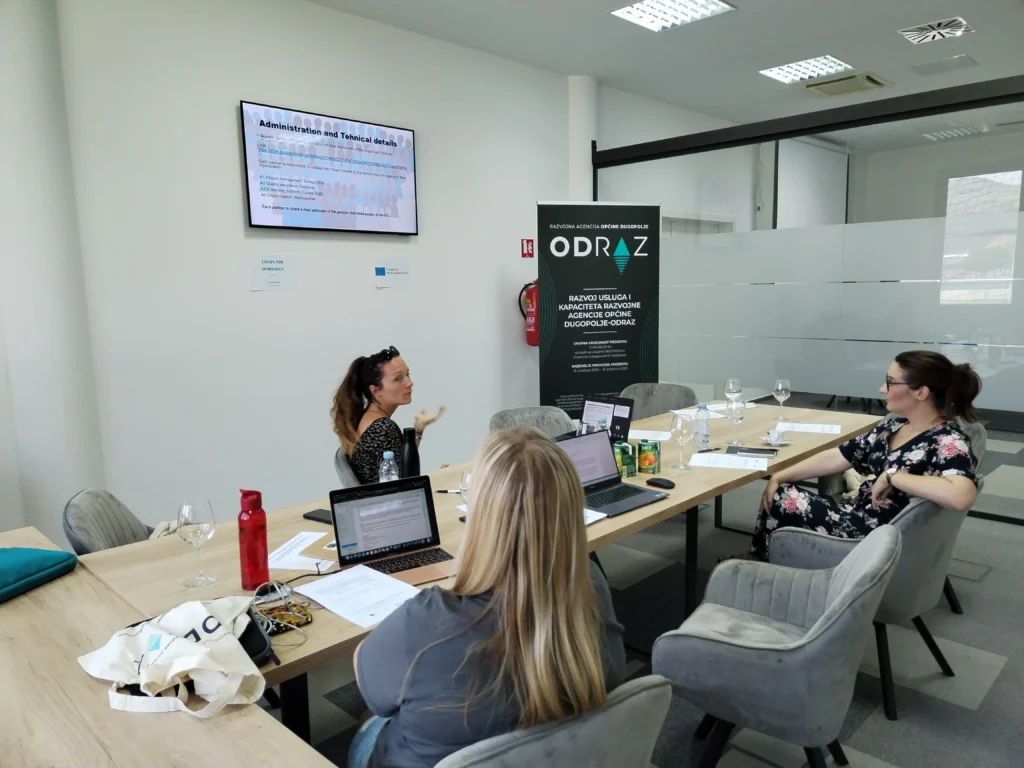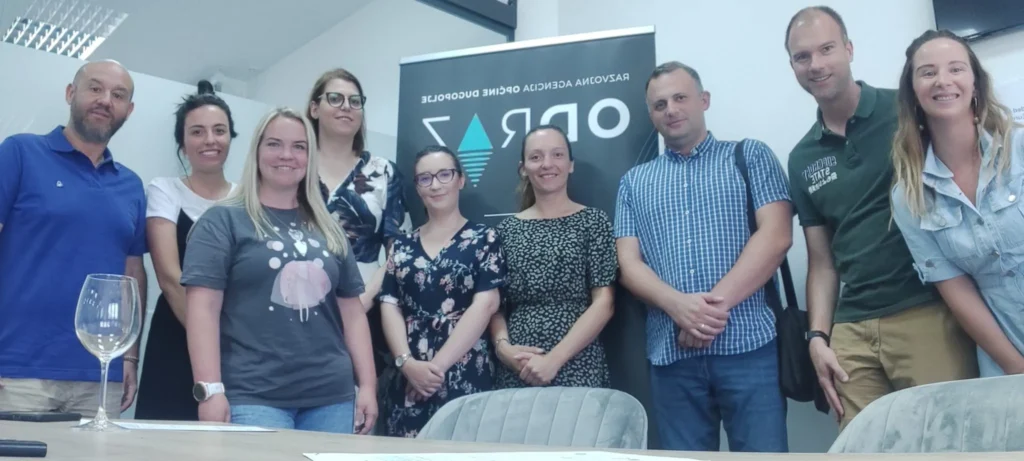Istraživanje Flash Eurobarometra iz 2019. g. pokazuje kako se sudjelovanje mladih osoba na demokratskim izborima značajno povećalo u usporedni s podacima iz 2014., međutim još je uvijek manje vjerojatno da će se mlade osobe uključiti u tradicionalne oblike sudjelovanja (temeljene na predstavničkoj demokraciji) od starijih generacija. Ovakav stav je posebno prisutan kod mladih u Hrvatskoj, Bugarskoj i Španjolskoj.
Jačanje razumijevanja kod mladih osoba za aktivnim sudjelovanjem u političkim procesima ključno je za budućnost EU. Nadalje, razvoj društenih i interkulturnih kompetencija, kritičkog mišljenja i medijske pismenosti predstavlja kamen temeljac za demokratski razvoj mladih u EU.
Kroz digitalne aktivnosti neformalnog učenja, Erasmus+ project E4D nudi prilike mladim osobama za društveni i građanski angažman te sudjelovanje u demokratskim procesima na području EU-a.

Aktivnosti ovog projekta bazirane su na analizi suvremenih istraživanja o sudjelovanju mladih osoba u demokratskim procesima u četiri partnerske države. Također, uključuju i primjere dobre prakse u partnerskim zemljama temeljene na metodama igrifikacije i neformalnog obrazovanja, a koje su relevantne za građanski odgoj mladih u EU. U okviru E4D projekta bit će osmišljene 3 virtualne i edukativne Sobe za bijeg, te ćemo razviti posebno dizajnirana rješenja za online učenje.
Tri online modula bit će popraćena posebnim priručnikom u kojem ćemo predstaviti ukupno 6 inspirativnih scenarija za izradu virtualnih Soba za bijeg s prilagođenim popisom potrebnih alata i materijala za razvoj igara na temu građanskog odgoja. Cilj projekta je predstaviti inovativan pristup radu s mladima koji kombinira metodologiju digitalne igrifikacije i pristup neformalnim metodama obrazovanja.
Rezultati ovog projekta pružit će nove mogućnosti učenja za mlade osobe diljem EU te ćemo ujedno nadahnuti osobe koje rade s mladima pomoću jasnih smjernica s ciljem poticanja demokratskog sudjelovanja mladih na području EU.

Partnerstvo: Europa 2020 (ES), Viimsi (EE) Kalimera, obrt za usluge (CRO) and Walktogether (BG)
Web stranica: www.escapefordemocracy.com
Facebook stranica: https://www.facebook.com/escapefordemocracy
Trajanje: Svibanj 2022 – svibanj 2024 (24 mjeseca)
Broj projekta: 2021-2-ES02-KA210-YOU-000048071

Projekt je sufinanciran sredstvima programa Europske unije Erasmus+ te će se provoditi od svibnja 2022. do svibnja 2024. godine. Ova publikacija i sav njen sadržaj izražava isključivo stajalište njenih autora i Komisija se ne može smatrati odgovornom prilikom uporabe informacija koje se u njoj nalaze. (Referentni broj: 2021-2-ES02-KA210-YOU-000048071)